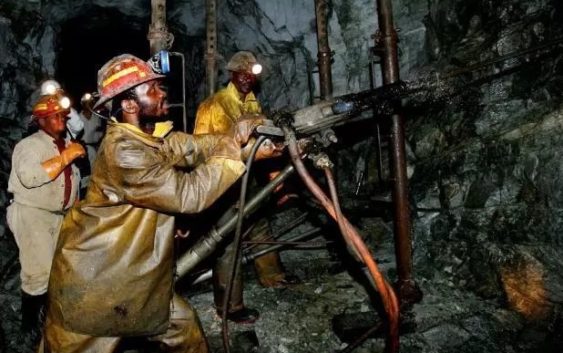IMPACT OF COVID-19 ON AFRICA’S ENERGY AND MINING SECTOR

Kieran Whyte discusses the impact of COVID-19 on Africa’s Energy and Mining Sectors. He is a Partner and Head of the Energy, Mining and Infrastructure Practice, at Baker McKenzie Johannesburg
China appears to have been more interested than any other big economy in investing in the African mining sector. According to China Mining 2018, in 2011, China investors controlled only about 10 mining operations on the continent and this figure rose to at least 24 in 2018. China’s interest in mineral resources in the African continent has been motivated, on the one hand, by its strong growth in power, construction and industrial manufacturing sectors, and on the other, by its declining internal mining production capacity year-on-year, due to declining ore grades, increasing labour costs and a more stringent regulatory environment. In return, China has one of the strongest infrastructure construction capabilities in the world and is arguably best placed to help Africa to address its vast infrastructure gap.
As such, the African mining industry faces an inevitable hit from China’s COVID-19 outbreak, although there is still much uncertainty as to how much and for how long the sector will be impacted. Reuters reported that China produced nearly 1 billion tons of steel in 2019 and consumed around 900 million tons due mainly to consumption in its infrastructure and construction sectors. Shutdowns have resulted in a decline in demand for steel and iron ore. African mining companies producing lithium, cobalt, copper and iron ore have already noted decreasing demand from China caused by production shutdowns and global supply chain disruptions.
Port closures, travel restrictions and manufacturing shutdowns are decreasing demand, causing oil importers in China to cancel purchases of African oil, forcing sellers to divert cargoes as they seek new buyers often at discounted prices. This week OPEC+ failed to agree on terms related to oil supply cuts to deal with demand challenges brought about COVID-19, starting an oil price war and causing oil prices plunge further. Demand has also decreased for Liquefied Natural Gas (LNG), with much of China’s total imports of the gas at risk of cancellation. China is the world’s second largest consumer of oil and one of the largest importers of LNG. However, it is also expected that once China has recovered this could lead to an increase in demand for raw materials.
In addition, significant outbreaks of COVID-19 in mining regions in Africa could affect workforce productivity, the availability of skilled technicians to travel from affected areas and the capacity of labour-intensive mining operations to produce raw materials. Mining companies in the region will be planning carefully to avoid such a scenario and ensure that they can effectively mitigate the spread of the virus.
Read more;

